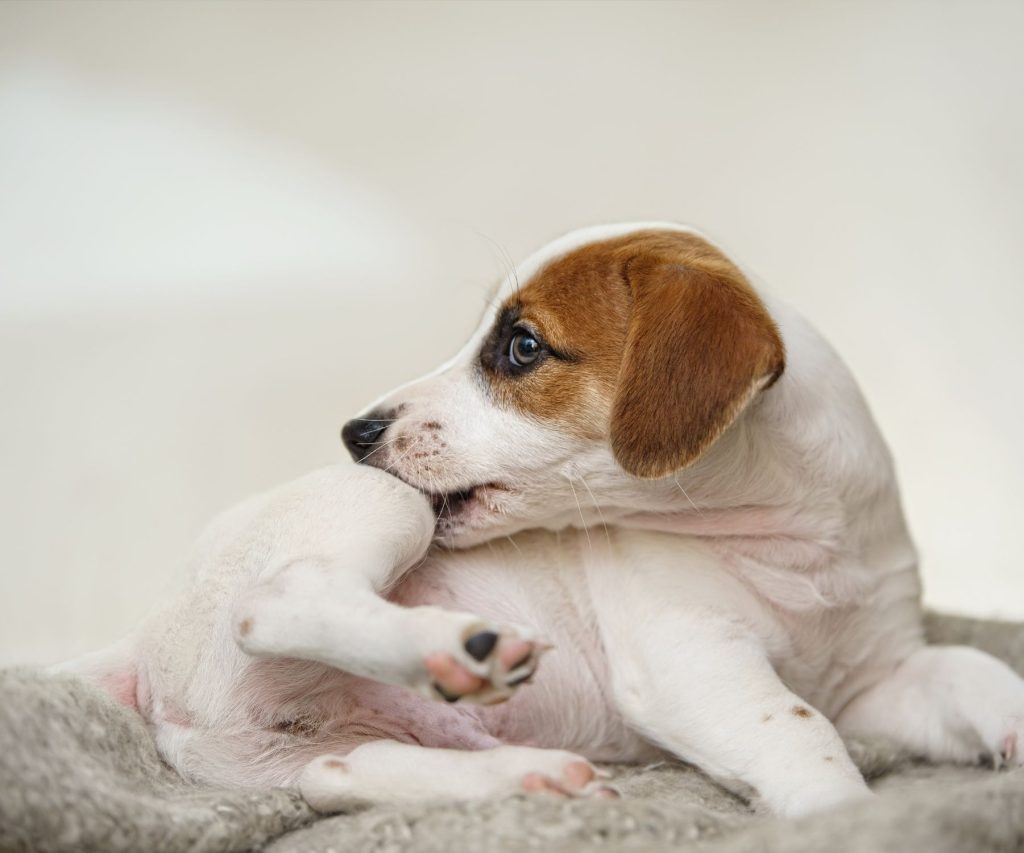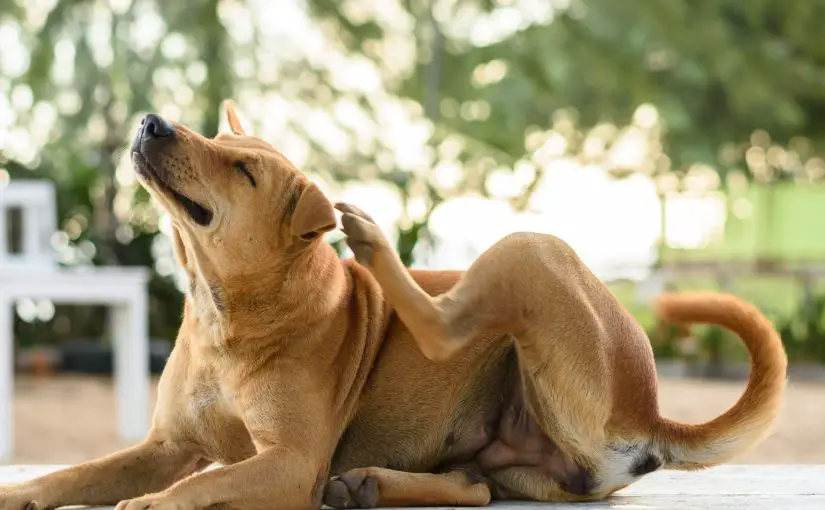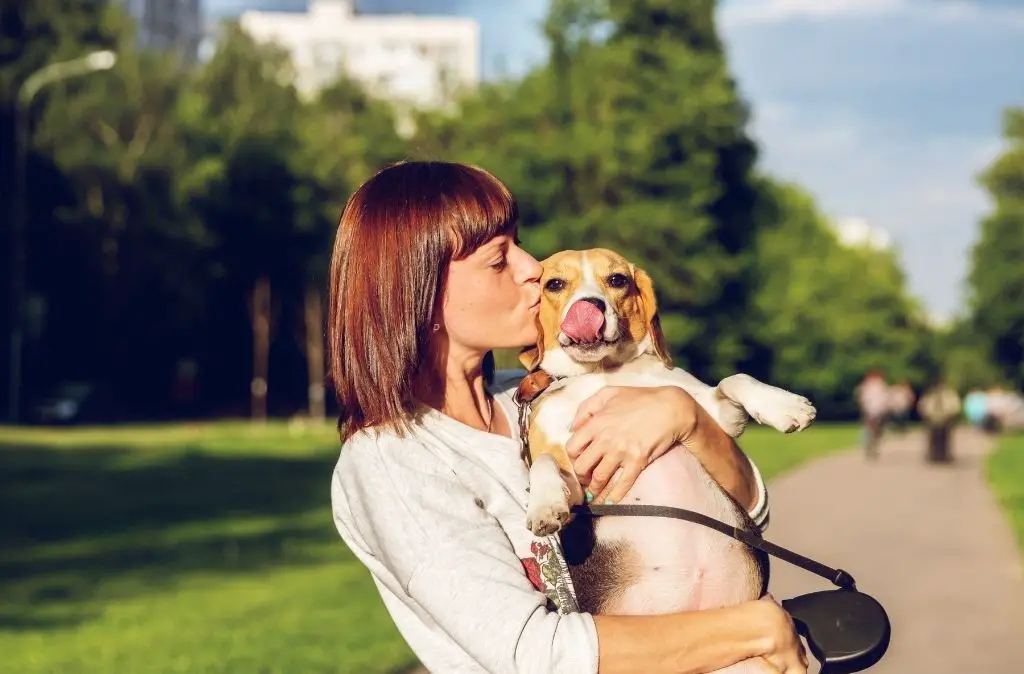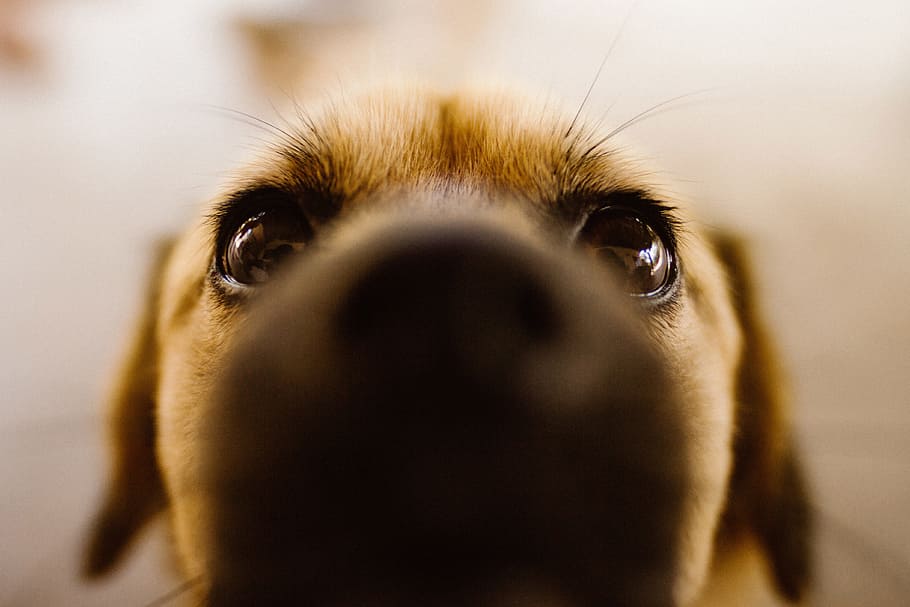Table of Contents
Why Does My Dog Stink and Scratch All the Time?
Dogs can develop skin conditions that cause itching, scratching, and unpleasant odors. Understanding the most common causes can help you get your dog the treatment they need for relief.
Common Causes of Doggy Odor and Itching
There are several potential reasons your dog may have itchy skin and smell bad:
Allergies
Dogs can develop allergies to things like food ingredients, pollen, mold, dust mites, and more. Allergic reactions cause inflammation and itchiness. Dogs will scratch, lick, or chew at their skin for relief. This leads to secondary infections that make the smell worse.
Common allergy signs include:
- Itchy skin
- Excessive licking of paws or base of tail
- Recurring ear infections
- Skin that appears red or irritated
- Strong odor even right after a bath
| Condition | Symptoms | Treatment Options |
|---|---|---|
| Allergies | Itching, redness, ear infections, licking | Allergy testing, immunotherapy, omega fatty acids, Zyrtec |
| Skin Infections | Pustules, crusting, hair loss, odor | Antibiotics, antifungals, medicated baths |
| Hormonal Disorders | Flaky skin, shedding, smell | Treatment of underlying condition |
| Parasites | Itching, redness, irritation, scratching | Bravecto, Revolution, NexGard, treat environment |
| Seborrhea | Greasy skin, dark flakes, odor | Antifungals, fatty acid supplements |
Skin Infections
Bacterial or yeast infections can take hold if your dog’s skin is compromised by allergies, hormonal issues, or parasites. Skin infections lead to pustules, irritated skin, bald patches, and a rancid odor.
Hormonal Imbalances
Issues with hormones can wreak havoc on your dog’s skin. Hypothyroidism, Cushing’s disease, and reproductive hormone imbalances can all cause flaky, smelly skin and shedding.
Parasites
Mites like demodex or sarcoptes can burrow into your dog’s skin leading to severe itching, redness, hair loss, and skin thickening. Ticks and fleas also cause irritation and inflammation. Dogs will scratch themselves raw trying to relieve the itch.
Seborrhea
This condition causes a buildup of greasy sebum on the skin under the fur. The thick sebum traps bacteria and yeast leading to secondary infections. Seborrheic dogs smell rancid or musky.
Folliculitis
Inflammation of the hair follicles leads to small, crusty bumps on the skin that ooze and smell bad. Folliculitis is often secondary to other skin issues like allergies or hormone problems.
Skin Folds & Wrinkles
Dogs with lots of skin folds and wrinkles like Shar-peis and English bulldogs are prone to irritated, infected skin. Moisture and debris gets trapped leading to inflammation, bacteria, and yeast overgrowth.
Diagnosing the Cause
If your dog is constantly stinky and itchy, the first step is getting them checked out by your veterinarian. They will do a physical exam and take your dog’s history into account.
Your vet may recommend:
- Skin scrapings – Using a scalpel blade to collect skin cells and look at them under a microscope for evidence of mites or infection. Skin cytology is also an option where tape is used to collect a skin sample.
- Fungal culture – Identifying yeast overgrowth on the skin by culturing a skin sample.
- Bacterial culture – Swabbing the skin and culturing the bacteria present to identify any pathogenic bacteria causing infection.
- Biopsy – Taking a small sample of skin and having it analyzed by a pathologist to determine what’s going on structurally.
- Blood tests – Checking for elevated white blood cells, looking at thyroid levels, and testing for other systemic issues.
Allergy testing
If your vet suspects allergies, they may recommend a specialized blood test or intradermal skin test to pinpoint the allergens. Common environmental allergens include mold, pollen, dust mites, and grass. Dogs can also be allergic to ingredients in their food like chicken, beef, dairy, wheat, etc.
Identifying the triggers is key for developing an allergen avoidance plan and targeted treatment.
Treatment Options
Treatment depends on the underlying cause but usually involves a multifaceted approach:
Medicated shampoos and rinses
Antibacterial and antifungal shampoos can help curb infections on the skin surface and reduce odor. Rinsing with a medicated conditioner leaves behind therapeutic ingredients to continue working between baths.
Topical and oral antibiotics
For bacterial infections, your vet may prescribe oral or topical antibiotics to reduce the pathogenic bacteria overgrowth.
Antifungals
For yeast dermatitis, antifungal medication like ketoconazole is used to kill off the overabundant malassezia yeast on the skin and reduce associated odor and itching.
Anti-inflammatories
Steroids and other anti-inflammatory drugs help reduce swelling, irritation, and itchiness caused by allergic reactions or skin infections. Common options are prednisone, Apoquel, Cytopoint, or over-the-counter Zyrtec.
Allergen avoidance
If allergies are the culprit, your vet may recommend prescription hypoallergenic food, restricting outdoor time during high pollen times, keeping your dog out of certain rooms, and using HEPA air filters to control allergens. Wiping paws after going outside can reduce exposure to pollen and other irritants.
Immunotherapy
Allergy shots introduces tiny amounts of the allergen to help your dog build tolerance over time. Improvement is often seen within 6-12 months.
Omega fatty acids
Fish oil supplements boost skin health and help reduce inflammation. Talk to your vet about dosage.
Antiparasitics
For mites, fleas, or tick infestation, medications like Bravecto, Revolution, and NexGard are very effective. You may also need to treat your home and yard.
Be patient finding the right treatment approach – it can take some trial and error. Work closely with your vet and be consistent. Let them know if symptoms persist so further diagnostics can be done or other therapies tried. With the right treatment plan, you can get your dog’s skin back to a healthy, happy state.
 FAQ
FAQ
What causes a dog’s skin to smell bad?
The most common causes of foul doggy odor are skin infections, allergies, hormonal issues, parasites, and excess skin folds where moisture gets trapped. Yeast and bacteria on irritated skin produce smelly metabolites.
Why does my dog keep scratching and biting himself?
Itchy skin usually stems from allergies, hormonal imbalances, skin infections, or external parasites like fleas and mites. The constant scratching and biting can damage the skin leading to further complications. Determine the root cause and treat it.
When should I take my itchy dog to the vet?
Schedule a vet visit if your dog has inflamed, irritated skin, bald patches, is licking or chewing excessively, has recurring ear issues, or smells bad despite regular bathing. Catching skin problems early makes treatment easier.
Can I use human shampoo on my stinky dog?
No, human shampoo is the wrong pH for dogs and can dry out their skin. Use a gentle veterinarian-recommended dog shampoo. If skin infections or other issues are causing odor, your vet can prescribe medicated shampoos to help.
How often should I bathe my smelly dog?
For most dogs, bathing every 2-4 weeks is sufficient. Bathing too often can strip away protective skin oils. Smelly dogs may need medicated baths 2-3 times a week at first. As their skin improves, bathing can be tapered to once a week or less.
My dog smells bad but her skin looks fine. What’s going on?
If your dog has odor without skin irritation, the cause may be an internal issue or gland problem. Anal gland impaction can cause fishy odor. Kidney disease, diabetes, or a gastrointestinal issue could also lead to bad breath or body odor. Have your vet examine them.
What can I spray on my dog to make him smell better?
Avoid heavily perfumed sprays that can further irritate your dog’s skin. A hypoallergenic cologne from your vet is a safer option. Better yet, identify and treat the root cause of the odor. Your vet can recommend baths, rinses, and other topicals that are safe and effective for dogs.
How do I get rid of my dog’s yeasty smell?
A yeast overgrowth on the skin causes a distinctive rancid/yeasty smell. Have your vet diagnose the underlying cause and provide antifungal treatment. Antifungal shampoos and rinses can help, along with other medicated topicals. Oral antifungals may be needed for stubborn infections.
Suggested Products for Itchy, Odor-Prone Dogs
Here are some vet-recommended products that can provide relief and help get your stinky dog’s skin back to a healthy state:
Veterinary Formula Clinical Care Antiseptic and Antifungal Shampoo
- Antibacterial and antifungal formula
- Helps curb skin infections
- Improves body odor
- Safe for frequent bathing
Dechra MiconaHex+Triz Shampoo
- Contains chlorhexidine, miconazole, and trisEDTA
- Kills bacteria and yeast
- Ceramides soothe skin
- Leaves lingering antimicrobial effects
Douxo Chlorhexidine PS Shampoo
- Contains chlorhexidine and phytosphingosine
- Reduces itchiness and inflammation
- Antimicrobial and antifungal properties
Virbac Epi-Soothe Cream Rinse
- Colloidal oatmeal relieves itching
- Ceramides restore moisture
- Helpful for frequent bathing
- Leaves a protective barrier
Dechra Malacetic Otic Cleanser
- Cleans debris and wax from ears
- Acetic and lactic acid curb bacterial and yeast growth
- Reduces ear infections associated with allergies
Helpful Resources
The ASPCA has extensive information on skin conditions that cause odor and itching along with treatment options.
PetMD provides a useful overview of common dog skin problems.
Conclusion
Itchy, smelly skin is miserable for dogs and concerning for owners. The most common culprits are allergies, infections, parasites, and hormone issues. Diagnostic tests can pinpoint the root cause so proper treatment can be provided for relief. With patience and working closely with your vet, you can get your dog’s skin healthy again and keep them comfortable.







